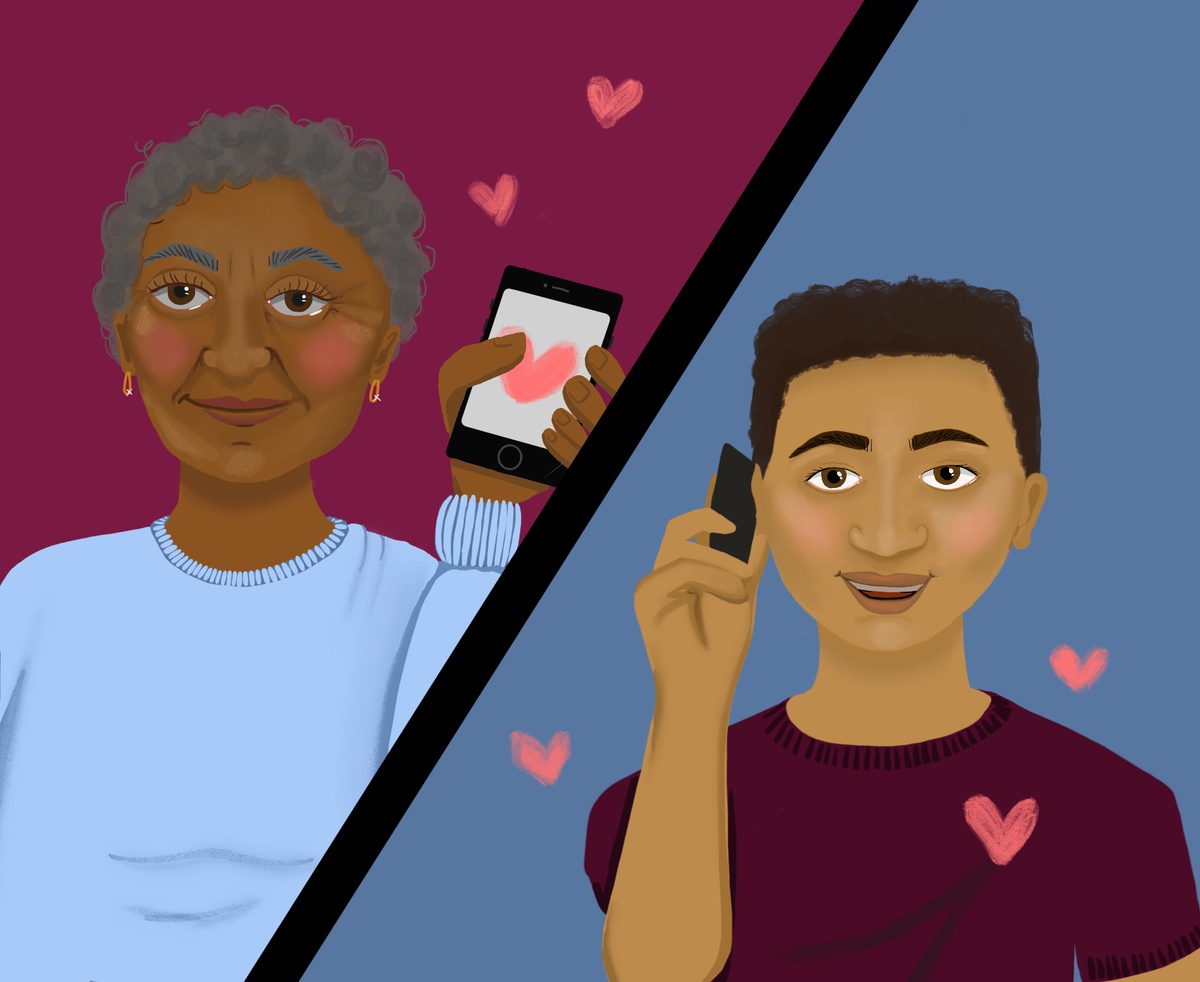UCLA must reach out to senior adults as stay-at-home orders exacerbate isolation

(Cat Nordstrom/Daily Bruin)

By Angela Hana
May 5, 2020 7:38 p.m.
Stay-at-home orders have shifted Los Angeles residents into a new normal of being socially isolated.
However, for many older adults, social isolation is far from a new concept.
There are approximately 49 million people who are 65 years or older in the U.S. Before the COVID-19 became a pandemic, many older Americans were already socially isolated, which increased their likelihood of developing dementia, heart disease and depression. Now, the stay-at-home state directive affects 5.3 million senior citizens in California.
While social isolation and loneliness are not the same, stay-at-home orders exacerbate the degradation of mental and physical health for older adults.
Social isolation is the objective physical separation from social environments like we’re seeing in stay-at-home orders, while loneliness is the subjective feeling of being alone. A UCSF study found that 43% of older adults felt lonely, while only 18% live alone.
At UCLA, researchers have suggested that policymakers attempt to reduce barriers to mental health services for these demographics. In addition, multiple medical centers at UCLA have expanded outreach through telehealth platforms.
UCLA already has the infrastructure, but now they need to do the outreach. Expanding telehealth platforms and increasing education on how to navigate these platforms would enable senior residents, especially those who are socially isolated, to be identified and cared for. Not only would providing strengthened telehealth resources increase accessibility, but increasing public education would also help younger generations contribute to the wellbeing of seniors in such an isolating environment.
The California Mental Health Older Adult System of Care Project conducted by the UCLA Center for Health Policy Research proposes policy recommendations to reduce barriers to public mental health care, including unmet basic needs such as food, housing and transportation.
But now, it’s a matter of increasing accessibility older adults who are unable to reach services.
Research shows that individuals who feel lonely may actually have a weakened immune system to fight off viruses, making them more vulnerable to infectious diseases. Social isolation may impact senior’s mobility and physical capabilities to do things on their own due to functional decline.
“There’s a relationship between social isolation and mental health concerns like depression, anxiety and suicidal ideation that all have been associated with the experience of social isolation,” said Kathryn Kietzman, a senior research scientist at the UCLA Center for Health Policy Research.
Not only does this correlation necessitate better outreach to elderly communities via existing telehealth services, it also means UCLA has a role to play in educating the public about the impact of social isolation on seniors’ mental health as well.
Living alone with cognitive impairment poses even more difficulties and risks of social isolation. A study showed that participants with Alzheimer’s disease explained how their friends were less interested to spend time with them after they shared their diagnosis.
And now that physical separation is mandated by state law, the risks associated with social isolation are magnified.
“(Older adults with early dementia) still understand the importance of meeting up with people and going out, so I think the stay-at-home orders become harder to process,” said Lourdes Guerrero, an adjunct assistant professor at the David Geffen School of Medicine and program director of the intergenerational support program TimeOut@UCLA.
Expanding online health services is no easy task, but UCLA already has a foot in the door, and many mental health and wellness services have already shifted to online platforms. The UCLA Longevity Center at the Semel Institute hosts webinars to promote healthy aging in place. On Wednesday, Dr. Gary Small and Dr. Linda Ercoli hosted a webinar discussing strategies for living better longer and reducing mind health risks. The UCLA Health division of geriatric psychiatry has transitioned to a telehealth platform.
But these local services need to be better publicized to reach a greater number of older adults in the LA area – and providing increased public education is a good place to start.
Many older adults face barriers to using technology which may stem from a lack of guidance or knowledge. Often, the responsibility falls on younger generations to educate older adults on how to use the technological resources available.
“I think people have been very adept at adapting to the new normal,” said Small, a professor of psychiatry and behavioral science and geriatric psychiatrist. “We’re finding it can be quite effective, although many of our older patients are not so computer savvy, and they have a hard time with the video conferencing.”
Guerrero suggests that UCLA students could help create tutorials or lessons on how to use technologies and social media platforms. She also encourages students to set up wellness checks with older adults in their life.
“Intergenerational support is important because it taps into the lived experiences of the older adults and that can come across as wisdom for the younger adults,” Guerrero said.
Providing older adults with a support network, promoting intergenerational connections and connecting seniors with telemental health services can help maintain their wellbeing. And with all the resources at hand, UCLA can work to educate and support this community through expansive outreach.
Clearly, this pandemic has put unprecedented stress on the public health system, as workers focus on detecting and treating vulnerable individuals with COVID-19. Mental health is often overlooked as a health concern when the majority of the focus has been on mitigating the virus. But while hospital workers focus on the immediate impacts of the virus, the UCLA community can do crucial work behind the scenes in the form of increased resources and education.
Reaching out to those in need can feel difficult without face-to-face interaction.
But we can make a difference for the most vulnerable members of our community – even if it’s just with a Zoom tutorial.

